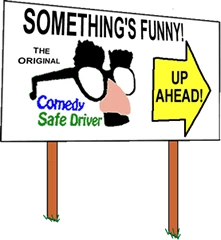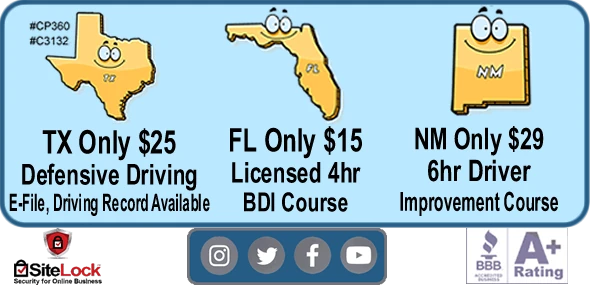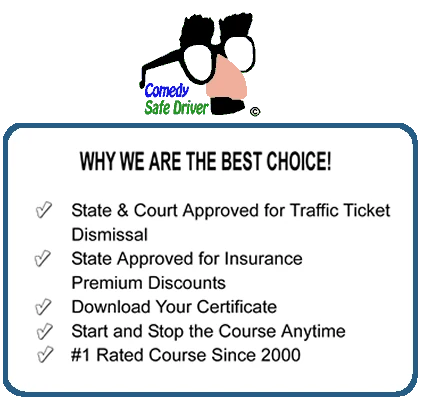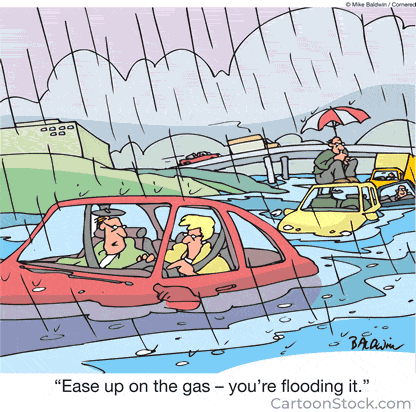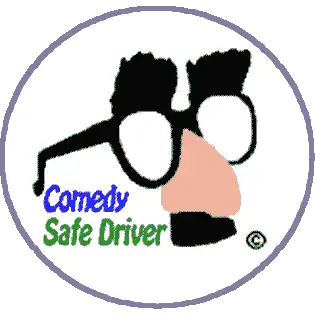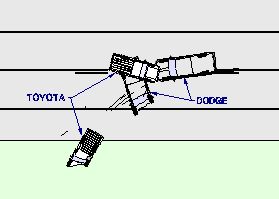
Avoiding Head-On Collisions
When avoiding a head on collision it's important to remember the four R's.
Read
Right
Reduce
Ride
Your reaction to a sudden dangerous situation on the highway can help you avoid the most dangerous thing you will most likely do on a regular basis.
Finally, it’s important to be aware of any blind spots you may have in your vision. These can be caused by the sun, other vehicles or even road signs. Make sure you are looking around your vehicle regularly to spot any potential dangers.
Read:
Read the road ahead. Are there sharp curves, heavy traffic or pedestrians coming up? It's all about being prepared. Be observant when approaching intersections. Keep a lookout for drivers that aren't slowing 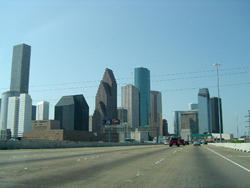 and may run a stop sign or red light.
and may run a stop sign or red light.
Head-on collisions are one of the most dangerous types of car accident, with devastating consequences. The best way to avoid them is to be aware of your surroundings and read the road ahead.
Reading the road ahead is a skill that takes time to develop and refine. It involves anticipating potential hazards and being aware of your surroundings. It’s essential to be aware of the conditions of the road and the vehicles around you, and to think ahead about what could happen.
One of the most important aspects of reading the road ahead is being able to identify potential hazards. This could be anything from obstacles in the road to vehicles travelling at a much slower speed than you. It’s important to be aware of any vehicles that may be travelling towards you, so you can be prepared to take action if they start to drift into your lane.
It’s also important to be aware of the conditions of the road. This means looking out for changes in the surface of the road, such as potholes, or wet patches from rain or melted snow. These can affect the way your vehicle handles and can increase the risk of a head-on collision.
It’s important to be aware of the speed of the vehicles around you. If you spot a vehicle travelling much slower than you, you should reduce your speed and leave enough space between you. This will give you more time to react and avoid a collision.
Reading the road ahead is a skill that takes practice to perfect. It’s important to be aware of your surroundings and anticipate potential hazards. This will give you more time to react and avoid a head-on collision.
Right:
Head-on collisions are some of the most devastating accidents on the road. They can be fatal for those involved, causing serious injury and even death. To avoid head-on collisions, it is important to keep to the right of the road to minimize the chance of a collision.
The first and most important rule of the road is to stay to the right. This means that vehicles should stay as close to the right side of the road as possible. Keeping to the right is especially important on highways and freeways, where the speed limit is much higher and there is less time to react to a situation.
Keeping to the right also helps to reduce the chance of a head-on collision. When two vehicles are traveling in opposite directions on a two-lane road, it is important to stay to the right to minimize the likelihood of a collision. If one vehicle is traveling in the left lane and the other in the right, the two vehicles could potentially collide head-on if they both try to pass each other at the same time. By staying to the right, one vehicle can safely pass the other without incident.
In addition to staying to the right, it is also important to drive defensively to avoid head-on collisions. Defensive driving means being aware of the other drivers on the road and anticipating their actions. This means scanning the road ahead for potential hazards, such as oncoming traffic, distracted drivers, and poor road conditions. By being prepared for these potential hazards, drivers can take action to avoid them, such as changing lanes or slowing down.
It is also important to be aware of the speed limit and other traffic laws. Drivers should not exceed the speed limit or drive recklessly, as this increases the likelihood of a head-on collision if another vehicle is traveling in the opposite direction at the same speed. Furthermore, drivers should always use their turn signals when changing lanes and should always stop at stop signs and traffic lights.
Finally, it is important to stay alert and attentive while driving. This means avoiding distractions, such as cell phones and other electronic devices. It is also important to avoid drinking and driving, as alcohol can impair a driver’s judgment and reaction time.
By following these tips, drivers can greatly reduce the chance of a head-on collision. By staying to the right, driving defensively, being aware of the speed limit and other traffic laws, and staying alert and attentive, drivers can help to keep themselves and others safe on the road.
Reduce
In a world where the number of motor vehicle accidents continues to rise, reducing your speed is one of the best ways to avoid head-on collisions. The problem is that most drivers don’t understand the importance of reducing their speed in order to avoid a head-on collision. In this article, we’ll discuss the importance of reducing your speed to avoid head-on collisions as well as some tips for doing so.
First and foremost, it’s important to understand that speed is a major contributing factor in head-on collisions. When two vehicles traveling in opposite directions collide head-on, the amount of force generated by the impact is often proportional to the combined speed of the two vehicles. This means that if the vehicles are traveling at a higher speed, the force of the impact is increased and the likelihood of serious injury or death is greater.
In order to reduce the risk of a head-on collision, it’s important to reduce your speed when you’re driving. This is especially true when you’re driving in dangerous conditions like fog, rain, snow, or ice. It’s also important to reduce your speed when you’re driving in areas with a lot of traffic, such as highways, city streets, and intersections.
There are a few tips you can follow to reduce your speed and avoid head-on collisions. The first is to always observe the speed limit. Make sure you’re aware of the posted speed limit and stay within it. This will help you avoid getting a ticket and more importantly, it will help you avoid a head-on collision.
Another tip is to be aware of your surroundings. Pay attention to the traffic patterns around you and know when to slow down. For example, if you’re approaching an intersection and there are cars coming from the other direction, it’s important to reduce your speed to avoid a head-on collision. Also, be aware of any obstacles that may be in the road, such as potholes, bumps, or animals.
Finally, it’s important to always be prepared for the unexpected. This means that you should always be prepared to slow down or stop if necessary. For example, if the car in front of you suddenly stops, you should be ready to slow down or stop as well.
Reducing your speed is one of the best ways to avoid head-on collisions. By following the tips outlined above and always being aware of your surroundings, you can reduce your speed and help keep yourself and others safe on the road.
Ride
Riding out of the way to avoid a head-on collision involves being aware of the other drivers on the road, and using defensive driving tactics to stay safe. It involves being aware of the other cars around you, and knowing when to move out of the way to avoid a potential head-on collision.
It’s important to be aware of the other drivers on the road. Pay attention to their speed and direction, and if they seem to be in a hurry or cutting across lanes, be prepared to move out of the way. Pay attention to the traffic lights, and if the other drivers are not following the signals, move out of their way.
It’s also important to be aware of your own speed. If you’re driving too fast for the conditions, you may not have enough time to get out of the way. Drive at the speed limit, and be prepared to slow down if necessary.
When you’re driving, always keep a safe distance from the other cars around you. This will give you enough time to react if the other drivers make a sudden move. It’s also important to look ahead and anticipate any potential problems on the road.
If you see a car coming toward you, and it looks like it might hit you, don’t panic. Instead, take a deep breath and calmly move out of the way. Move to the left or right, depending on the direction of the oncoming car. Be sure to check your mirrors and blind spots before making any sudden moves.
If you feel like you’re in danger of a head-on collision, don’t try to outrun the other car. Instead, slow down and move out of the way, and then take a break if needed. Don’t try to speed away, as this could make the situation worse.
Riding out of the way to avoid head-on collisions is a great way to stay safe on the road. It’s important to be aware of the other drivers around you, and to be prepared to move out of the way if necessary. Remember to keep a safe distance from the other cars, and to never try to outrun them. With these tips, you can reduce your chances of being involved in a head-on collision.

